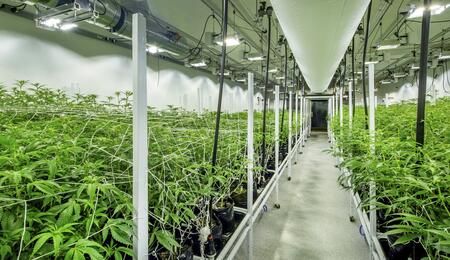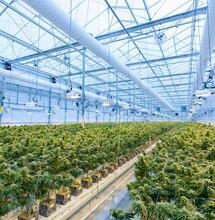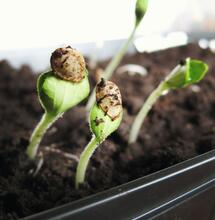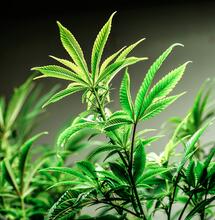Certificates for the Cannabis Industry

Although Cannabis is now legal in Canada, those who wish to get involved in the cultivation and selling of its products face a real uphill battle before they can get started on any kind of cannabis related endeavour. This includes everything from the selling of seed, right through to the end retail sales of flower and edibles.
What Legal looks like
he seven-stage application process to obtain a licence is not for the faint of heart and the demands of the regulatory submissions are very difficult to meet. It is a very complex process, requiring a lot of information, a lot of money and a lot of time, with the entire application process taking more than a year to complete. Many consumers are lucky enough to only see the end results of this landmark legal ruling. I thought it would be interesting however to look behind the scenes and see just what it takes to bring legal product to the end user. Not only this but also the challenges that surround the buying or selling of seeds which you would think from outside looking in, would be a simple transaction when in actual fact it is not! The Cannabis Act came into force on October 17, 2018, from which date applications for licences could be submitted to Health Canada. The application is a difficult task in itself with many businesses re-applying after being rejected the first time around. One applicant described the process as costly with no guarantee of favourable results. These would-be cannabis producers spent about $75,000 on consultants and lawyers for their first application. This was on top of the hundreds of thousands of dollars that had been spent on fully fitting out a facility for cultivation. Recent changes in regulations state that those wishing to obtain a cannabis cultivation licence must have a facility that meets Health Canadas regulations, ready to go, before they even start the application process!! As it stands currently, in order to be able to legally grow, sell or manufacture cannabis and its products, potential businesses may need 2 licences: 1 from Health Canada and possibly, 1 from the Canada Revenue Agency (CRA). You must have a licence from Health Canada (the Canadian government department that is responsible for national public health) if you intend to: grow cannabis commercially, process cannabis into finished products, sell cannabis for medical purposes, conduct tests on cannabis or conduct research with cannabis. Additionally, holders of a cannabis processing licence who want to produce edible cannabis, cannabis topicals and cannabis extracts will require further amendments to their licences. Cultivators and processors also need to obtain a second licence from the Canada Revenue Agency (CRA) who are the equivalent of the IRS in the USA or HMRC in the UK. So, if you are lucky enough to be able to meet all the relevant criteria and successfully obtain a licence you may think that you are home dry but unfortunately this is not the case. Registered businesses must also buy and apply cannabis excise stamps to their products. An excise stamp must be present on all legally produced cannabis products available for purchase, with THC levels of 0.3% or higher. As well as the mountain of paperwork the costs can really stack up with fees applying to most types of licences including; cultivation, processing and sales for medical purposes. Additional fees then also exist for pretty much everything else you can imagine, including the screening of licence applications, the conducting of security screening of key persons and the reviewing of applications to import or export cannabis for scientific or medical purposes. So, once you finally have your licence you can look forward to… yep, you guessed it; more fees!! With their being further regulatory costs for processes such as, reviews of licence applications, issuance of licences, inspections, compliance, enforcement activities and Packaging and labelling requirements. Packaging and labelling requirements within the legal sector are very strict and are designed to try and protect against accidental consumption, stop products from appealing to children and to give consumers all the information they need before choosing to use cannabis or not. Similarly, there is also a list of things that are prohibited from appearing on packaging, including any unauthorised promotion of cannabis, cannabis accessories or services related to cannabis. Even once you are fully up and running the compliance continues as licence holders for the cultivation and processing of cannabis, are required to submit monthly tracking reports. “The Health Canada cannabis tracking system” prevents legal cannabis from being diverted to the illegal market and prevents illegal cannabis from being introduced into the legal market. The system also tracks the movement of cannabis from cultivation, to processing, to sale. Health Canada currently uses a range of enforcement tools to ensure compliance with all areas of the regulation process and those do not comply are at risk of having their licenses suspended or revoked, as well as possible prosecution. It is not just the finished products of Cannabis that are subject to licences or regulations either, just trying to get hold of seeds in Canada, whether you are a large scale producer or a potential home grower is riddled with issues due to legality and differing regulations from state to state. Canadian Federal Law states that you can only grow plants (where legal) using seeds legally acquired. Everyone over the age of 18 is legally allowed to buy cannabis seeds and grow up to four plants for their own personal use and the easiest place to buy them should be a legal dispensary. Legal dispensaries can only sell weed (or seeds) “in-province”, as each province and territory has its own law prohibiting import of either weed or seeds from elsewhere. Seeds are available from legal dispensaries but the selection is very limited. This is because dispensary owners are reluctant to push for more variety as it makes no business sense to sell seeds to the same people that they are selling weed too. Across Canada, the seeds offered by legal retailers mainly comprise of two indica-dominant varieties. Choice is very, very limited and whilst It’s not hard to find Canadians who grow their own weed it is virtually impossible to find any who bought seed from legal retailers. There are Canadian seed dispensaries currently operating who are selling and shipping seeds both nationally and internationally but they are basically doing so outside of the law as they do not hold licences. They manage to exist relatively unopposed, for now however, because for now the “illegal” selling of seeds is tolerated in light of licensed distributors not having enough supply. Eventually however this will change and there will likely be a crackdown on these online dispensaries. Another popular alternative are online “free seed hubs”. These are exchange forums set up online where people give away their seeds or cuttings to other growers in the same province. So long as no money changes hands, there’s nothing illegal about doing this. Price is a big factor also with buyers reluctant to pay higher prices for less desirable legal seeds than for the more desirable ones which are available on the grey market. Legal retailers sell their two varieties at $60 for a four-pack, while feminized grey-market seeds range from $40 for five to $65 for five. The lack of legal seed distributors is also partly down to the fact that many licensed producers have yet to make their seeds widely available through provincial distributors as doing so outside of their deals with the province(s) with which they are registered could jeopardise their licenses. Growing seeds is also a very specific business model that requires its own separate facility. When licensed cultivators are growing in 30,000-square foot rooms, they are not going to take 100 square feet of that growing room and dedicate it to seed production.” This would not make sense financially due to the monetary return made on seeds versus cannabis products but also in a practical sense it is a huge risk. Licensed producers who are raising plants in tightly controlled conditions cannot afford to have pollen flying around. Pollen is essential for seed production but is to be avoided at absolutely all costs when trying to raise plants for THC production as it could easily pollinate your female plants and destroy your final yield. Even if you yourself have a licence to grow cannabis you still “legally” need to buy your stock seeds or plants from a fellow licensed business whose licence permits this. However because of the lack of current legal seed supply as just discussed, this can prove to be a bit of a problem. There is a current loophole however where If you are a new licence holder for cultivation, Health Canada will permit you to bring in material from undisclosed sources for a short period of time. After this however you must carefully document that your seeds have come from a legal source. As in the case of the illegal seed banks however it is highly likely that once legal seed stocks are high enough that this loophole will close! I think it was widely assumed that legalisation would help to resolve all the issues surrounding cannabis and access to it, when in some ways it has evolved to created new problems of its own! Hopefully as time moves on these teething problems will be ironed out and the model of legality can be rolled out with success to more countries across the world.



